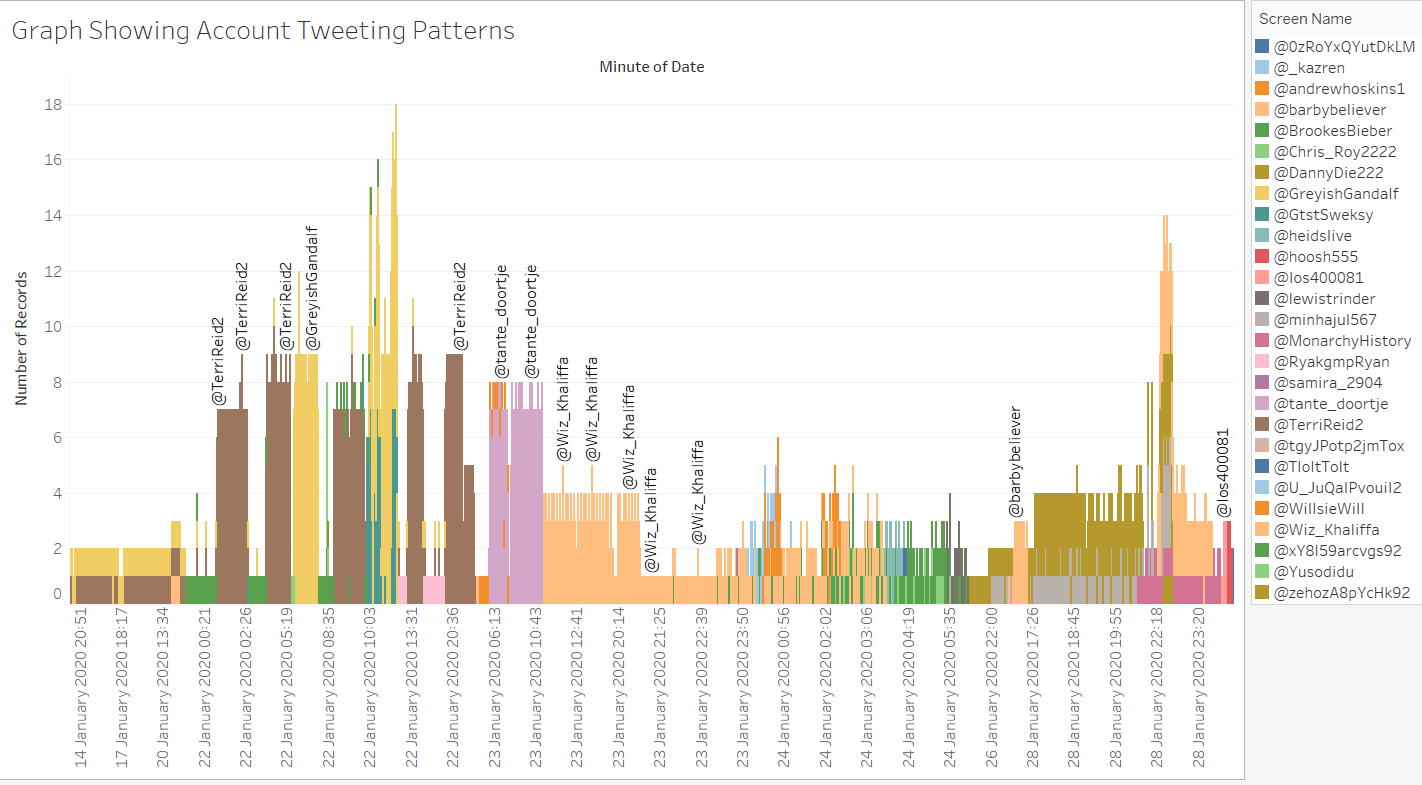How IS uses hacked accounts to flood Twitter with propaganda

Those familiar with Arabic Twitter will know it’s an NSFW (not safe for work) minefield. Trending hashtags are often dominated by propaganda, porn and Viagra ads.
But there are also Islamic State (IS) accounts - lots and lots of them. Click on a trending Arabic hashtag, and chances are you will see a video of an IS attack, a speech by former leader Abu Bakr al-Baghdadi, truck bombs, and executions at pointblank range.
The idea is that one tweet will then appear on multiple trends across Arabic Twitter. In other words, there's no escape
Uniting all of these videos is a common thread: exhortations of the merits of IS, an organisation known for its well-publicised brutality.
This isn’t an anomaly. Over the past few months, trending hashtags in Arabic countries have been spammed rapidly with thousands of videos of IS propaganda, from Saudi Arabia to Algeria.
During the last two weeks of January, I downloaded a non-exhaustive sample of at least 5,800 tweets of IS propaganda. More than 4,100 of these were posted in just a two-day period.
Almost all of these tweets contained embedded videos of IS propaganda. The most grisly showed a row of men being executed systematically by a man with an automatic rifle.
The modus operandi of whoever is operating these accounts is crude. They select trending topics across the Arab world, and spam them with tweets containing multiple hashtags. The idea is that one tweet will then appear on multiple trends across Arabic Twitter. In other words, there’s no escape.
Many accounts appear to be automated, posting tweets in regular succession. For example, @MarroZabala (now suspended) posted two tweets every minute, around 40 seconds apart.
High volume, short lifecycle
The accounts are usually suspended fairly quickly by Twitter, but at varying rates - and not before they have distributed hundreds of tweets each, suggesting a reliance on people reporting accounts, rather than an automatic algorithm.
Most of the accounts appear to have been real accounts appropriated by IS to distribute propaganda. On many, you can still see evidence of the original user’s tweets, standing in stark contrast to the propaganda.
One account, @MonarchyHistory (now suspended), appeared to be an account interested in everything related to the British monarchy. Another was a Welsh mum who still had photos of a regional football team on her timeline.
Most of the accounts tweet in extremely high volume, presumably to maximise their short lifecycle. One hijacked account, @TerriReid, tweeted 1,500 tweets in just six days. Another account, @Wiz_Khaliffa, posted 800 times in just two days between 22 and 24 January.
Due in part to the high volume of tweeting, engagement can be high. In my sample of 5,800 tweets, there were more than 800 retweets and 900 favourites. The propaganda videos elicit many responses, with one collecting around 21,000 views. People interact with the tweets, expressing condemnation or support. In short, such tweets are not simply being ignored.
Frequently, the videos appear in the “top” section of Twitter’s search results, ensuring that those exploring certain hashtags will immediately be exposed to IS propaganda.
Combatting disinformation
Several years ago, Twitter announced that it had suspended 125,000 mostly IS-related accounts between mid-2015 and February 2016. Subsequent research has questioned whether such suspensions are effective, or more like a game of whack-a-mole.
Whatever Twitter's tactics to curb this propaganda, those running the automated IS propaganda machine have gamed it, to seemingly crude but powerful effect
Indeed, with new propaganda accounts appearing almost as soon as others have been suspended, it would suggest that the operators have a reservoir of accounts to draw upon.
The current tactic appears to use a relatively small number of highly disposable accounts, which tweet at high volume across multiple hashtags. Rather than deploy all the accounts at once and risk having them suspended en masse, this allows the network operator to offer a more consistent and long-term stream of IS propaganda.
This casts more doubt on Twitter’s ability to effectively combat fake news, disinformation and propaganda online.
Attempts to curb their influence rely on attempted damage limitation, rather than prevention. What’s more, many of the videos appear to be posted through Twitter Ads, Twitter’s official advertising platform, which allows the scheduling of tweets.
Whatever Twitter’s tactics to curb this propaganda, those running the automated IS propaganda machine have gamed it, to seemingly crude but powerful effect. Contrary to the argument that IS is dying out, this shows that, at the very least, the group’s information operation is still going strong.
The views expressed in this article belong to the author and do not necessarily reflect the editorial policy of Middle East Eye.
This article is available in French on Middle East Eye French edition.
Middle East Eye propose une couverture et une analyse indépendantes et incomparables du Moyen-Orient, de l’Afrique du Nord et d’autres régions du monde. Pour en savoir plus sur la reprise de ce contenu et les frais qui s’appliquent, veuillez remplir ce formulaire [en anglais]. Pour en savoir plus sur MEE, cliquez ici [en anglais].







